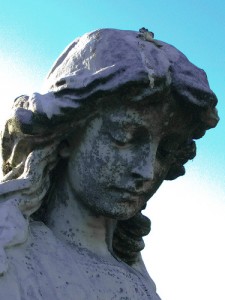 Top o’ the mornin’ to those of Irish heritage as well as everyone who celebrates with them.
Top o’ the mornin’ to those of Irish heritage as well as everyone who celebrates with them.
Depending on how the day goes we may celebrate by cooking up a little corned beef and cabbage along with some Irish soda bread. We’ll see . . .
My heritage includes both Irish and German cultures. As the joke goes, “It’s good to be Irish and German, as long as you get your sense of humor from the Irish and your work ethic from the Germans – and not the other way around.”
This joke is funny because it alludes to the dark side of being Irish. Too many Irish families struggle with alcoholism and addiction. These families will often describe themselves as “close knit” which in reality means exclusionary. Caught in this clan from birth, family members can’t see the devastation brought about by binge drinking at family functions over decades. They can’t see the pathology of having a social life that never extends beyond family members.
While many families exhibit some dysfunction, these families exhibit a dysfunction that is toxic and extreme. There are identifying behavioral markers. In toxic families (not only Irish, but others too unfortunately), the family becomes the only social network. Family connections are self-contained, limiting and dysfunctional. I’ve observed family members who even idolize older members who exhibited addictive behavior, participated in tax evasion, fraud, abusive behavior, even pedophilia!
Other related characteristics among family members include symptoms of anxiety, depression, eating disorders of all kinds, migraines and other stress related disorders.
Outsiders need not apply – another marker. I remember hearing statements like “I only allow family to babysit my children” as if other people are incapable of taking proper care of children or are never trustworthy. What fearful values regarding relationships with others are being taught here? Further, this results in the children having even less contact with others beyond the family. Over decades, I remember only a handful of outsiders ever attending most family functions. This is social “incest” at its worst.
Individual autonomy is feared. Those in the family who move into the wider community or develop autonomy may be shunned – however considering the poor relationships that are being ended, that’s not necessarily a bad thing. I speak from personal experience. I was lucky. I escaped.
Members of toxic families rarely contribute to the wider community. They don’t have the social connections to do so. Even it they try – generally their personal boundaries are so poor that others will limit contact with them. In toxic families, everyone is way into everyone else’s business. Communication is not transparent – but secretive. Sarcasm and double meanings are rampant. Family secrets abound.
At its core, all of this behavior comes from living out of a stance of fear. Members fear that they could never survive outside the “family” as unfamily-like as it is. The paradox is that their acceptance within in the group is not unconditional or loving – but highly conditional as demonstrated by those who are shunned.
While the inclination to alcoholism (and other addictions) is genetic, it is also an attempt to avoid the underlying pain and suffering from the extreme dysfunction. Sadly, too many families that socialize around binge drinking exhibit many of the above markers and characteristics.
Our families are meant to be places where we learn about inclusion and acceptance. In healthy families we learn how to develop loving relationships so that as adults we can move out into the world and create similar relationships with those who are not part of our families of origin. In my own life, because I was forced to leave home as a minor, I was fortunate to have close contact with many other healthy families throughout my life, who demonstrated for me what a loving, healthy family dynamic was.
This St. Patrick’s Day, may those who are caught in a family web of toxic dysfunction experience a desire to take the first step toward change.
To all of you whose life work is to help create healthy family systems I say “go raibh maith agat” or thank you.
You may also like Estrangement – The High Cost of Leaving or Living? and Celebration of Family.
[…] may also like Introducing InnerPeace, Irish Heritage and Difficult People. This entry was posted in Health and well being, InnerPeace, Spirituality. […]